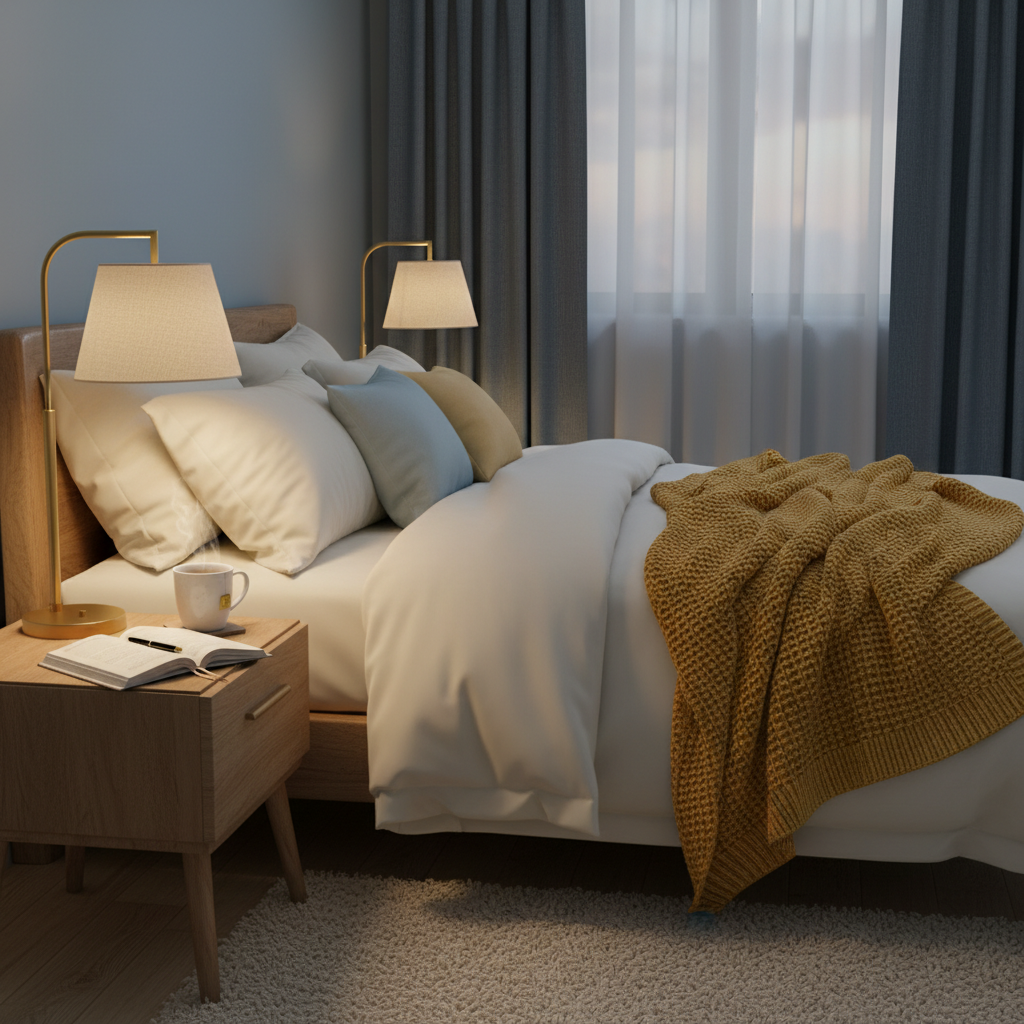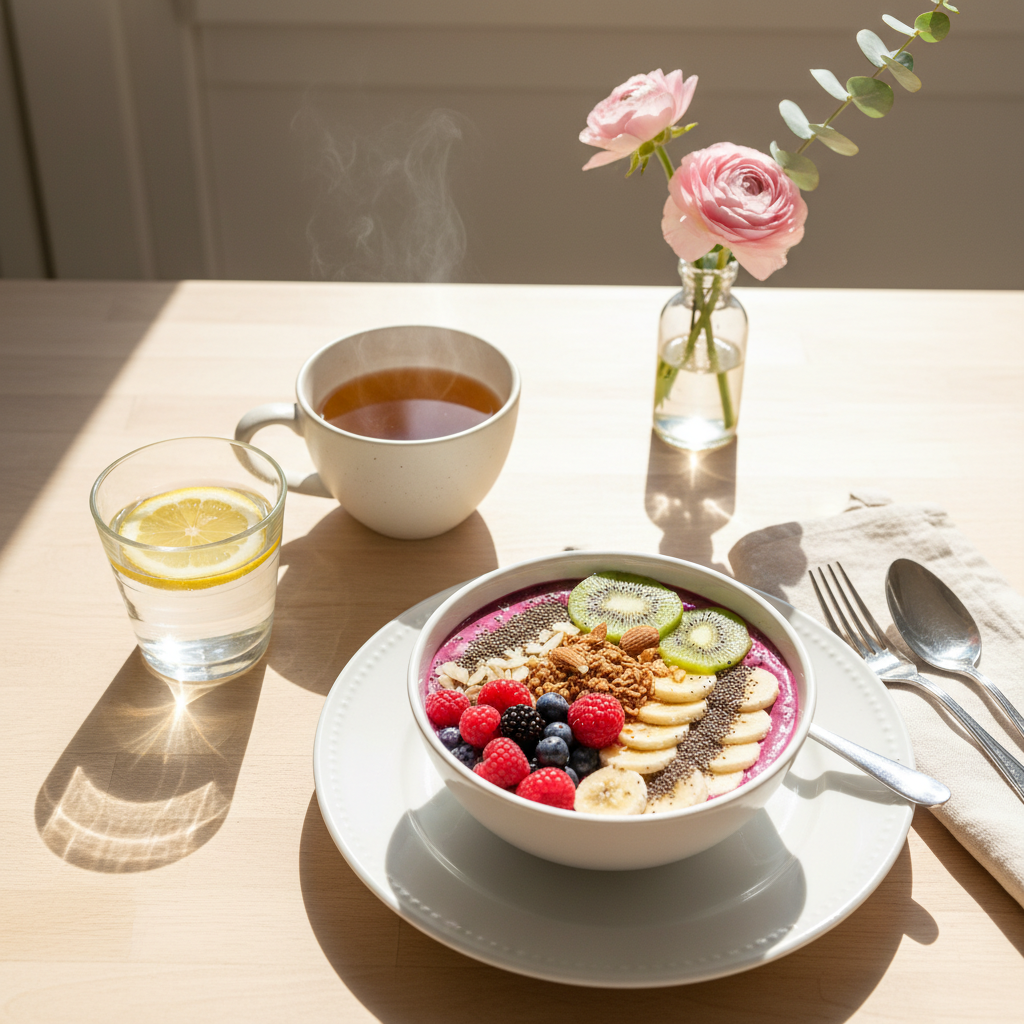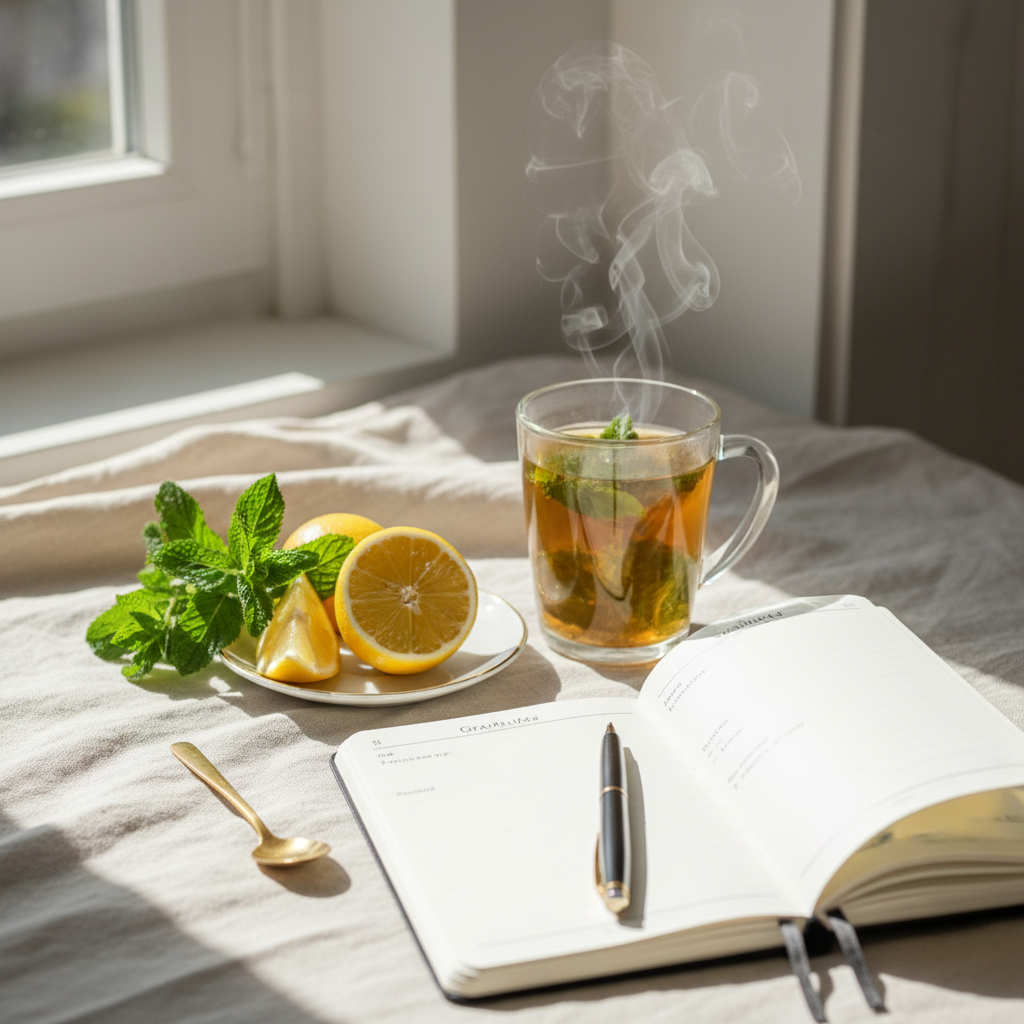Evening Habits to Fall Asleep Faster: The Ultimate Guide to Better Sleep

Why Establishing Evening Habits Matters for Sleep
Let’s be honest: trying to fall asleep can sometimes feel like solving a Rubik’s Cube blindfolded—frustrating and confusing. I’ve often found myself staring at the ceiling, searching for rest. But here’s the truth: developing evening habits to fall asleep faster isn’t just a trendy idea; it’s rooted in science and research.
When I started approaching my evenings as a calming bedtime ritual rather than a late-night binge, my brain got the cue: “Hey, it’s time to relax.” Suddenly, falling asleep transformed from a long, restless process to a smooth 15-minute descent into slumber. This isn’t magic—it’s simply a routine that trains your biological clock and soothes restless thoughts.
In essence, your brain craves a routine as much as your dog loves treats—and this love pays off with sound, uninterrupted Zzz’s.
Takeaway: Establishing evening habits sends a powerful signal to your brain to switch from “party mode” to “bed mode.” Your pillow will definitely thank you.

Essential Evening Habits to Help You Fall Asleep Faster
1. Keep a Consistent Sleep Schedule
We all love sleeping in on weekends, but maintaining a consistent bedtime and wake-up time every day—including weekends—is like setting your body’s internal GPS. Disrupt it, and you risk entering the confusing realm of “Why can’t I sleep?” Your circadian rhythm, the fancy term for your internal body clock, thrives on consistency.
If you want to fall asleep faster, control your bedtime like a boss. For more in-depth insights about circadian health, check out our deep dive into circadian rhythms.
2. Dim the Lights and Limit Screen Time
Blue light emitted by phones, TVs, and laptops is the sneaky villain disrupting sleep by telling your brain that it’s not bedtime yet. Turning off screens at least one hour before bed and switching to warm, dim lighting helps your brain receive the “time to wind down” cue.
For scientifically backed details on blue light’s effect on sleep, visit Sleep Foundation’s article on blue light.
3. Practice Relaxation Techniques
Relaxation techniques may sound dull, but they are powerful tools to calm your mind and body before sleep. Try these:
- Meditation or Mindfulness: Acts as mental decluttering.
- 4-7-8 Breathing: Inhale for 4 seconds, hold for 7, exhale for 8 – a lullaby for your nervous system.
- Gentle Yoga or Stretching: Gives your muscles a calming spa treatment.
4. Create a Restful Sleep Environment
Transform your bedroom into a cozy cave for sleep: maintain a cool temperature (60–67°F), use blackout curtains to block light, and minimize noise disruptions. Add comfy sheets and soft pajamas for extra comfort. A perfect sleep environment can be the key to switching from restless nights to sweet dreams.
5. Avoid Caffeine, Alcohol, and Heavy Meals in the Evening
Caffeine and alcohol interfere with quality sleep, crashing your nighttime recovery party. Also, avoid heavy meals within 2-3 hours before bedtime to prevent discomfort and restlessness.
6. Establish a Wind-Down Routine
About an hour before sleep, switch from stimulating activities to calming ones. This could be reading a feel-good book, soaking in a warm bath (temperature magic!), or sipping herbal teas like chamomile or lavender, known as natural sleep aids.
7. Manage Anxiety by Journaling
If your thoughts are racing, jotting them down helps offload worries and future to-dos, signaling your brain that it’s okay to rest. This approach works better than scrolling social media, which can increase stress.
Takeaway: Combine and personalize these evening habits to fall asleep faster for the best results. Your well-rested self will thank you.

Personal Tip: Why This Works for Me
When I began dimming lights and journaling nightly for just 10 minutes, it felt like flipping a switch. My brain stopped rehearsing speeches and surrendered to sleep’s gentle pull. Miss these steps, and insomnia tends to return with an unwanted encore.
Takeaway: Small, consistent changes outperform occasional grand efforts. Start with manageable steps like dimming lights and build your sleep kingdom gradually.

Cultural Insight: Evening Routines Around the World
Cultures around the globe have long embraced evening habits to enhance sleep. In Japan, the onsen culture features hot spring baths that relax the body and prepare the mind for rest. Scandinavians practice hygge, emphasizing cozy, dimly lit spaces and slowing down evenings for peace and comfort. These traditions echo the timeless value of evening habits to fall asleep faster.
Takeaway: Sleep-friendly habits are universal. Find what resonates with you and call it your global bedtime win.
Frequently Asked Questions (FAQ)
Q1: Can I substitute meditation with another activity?
A: Absolutely. Any calming, non-screen activity like coloring books, soft music, or gentle reading helps relax your brain.
Q2: How important is room temperature for sleep?
A: Very important. Your body cools to fall asleep, so maintain a cool but comfortable room temperature to support this natural process.
Q3: Can daytime naps improve or hinder nighttime sleep?
A: Short naps (20-30 minutes) earlier in the day can be beneficial. Avoid long or late naps as they may disrupt your nighttime sleep.
Q4: What if I can’t fall asleep within 20 minutes?
A: Don’t force sleep. Get up, find a dimly lit cozy spot, and engage in a relaxing activity (avoid screens). Let sleep come naturally.
Takeaway: Patience and gentle routines are some of the best sleep aids.
If you’ve read this far, you’re clearly committed! Now it’s time to implement these evening habits to fall asleep faster and reward your future self with peaceful mornings and energized days. Remember, your bed isn’t going anywhere—but these habits will help ensure you get the restful sleep you deserve.
Explore more about your sleep health in our deep dive into circadian rhythms.
Discover time-tested coziness with Scandinavians’ hygge traditions.
Learn about blue light and its sleep effects from Sleep Foundation’s trusted study.


